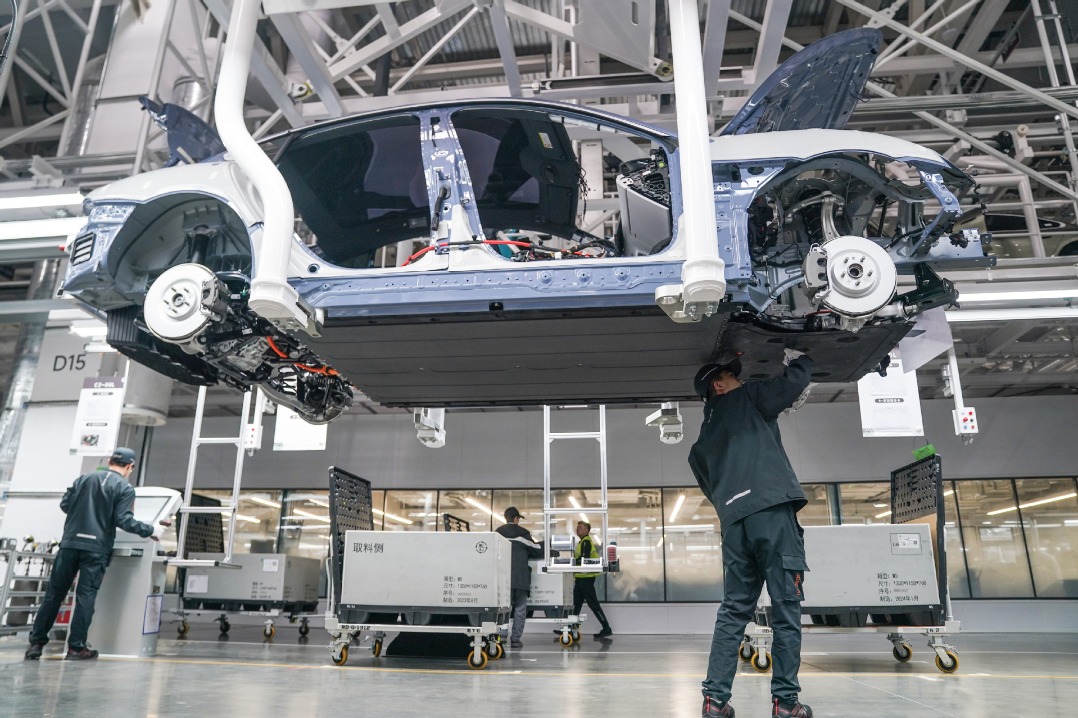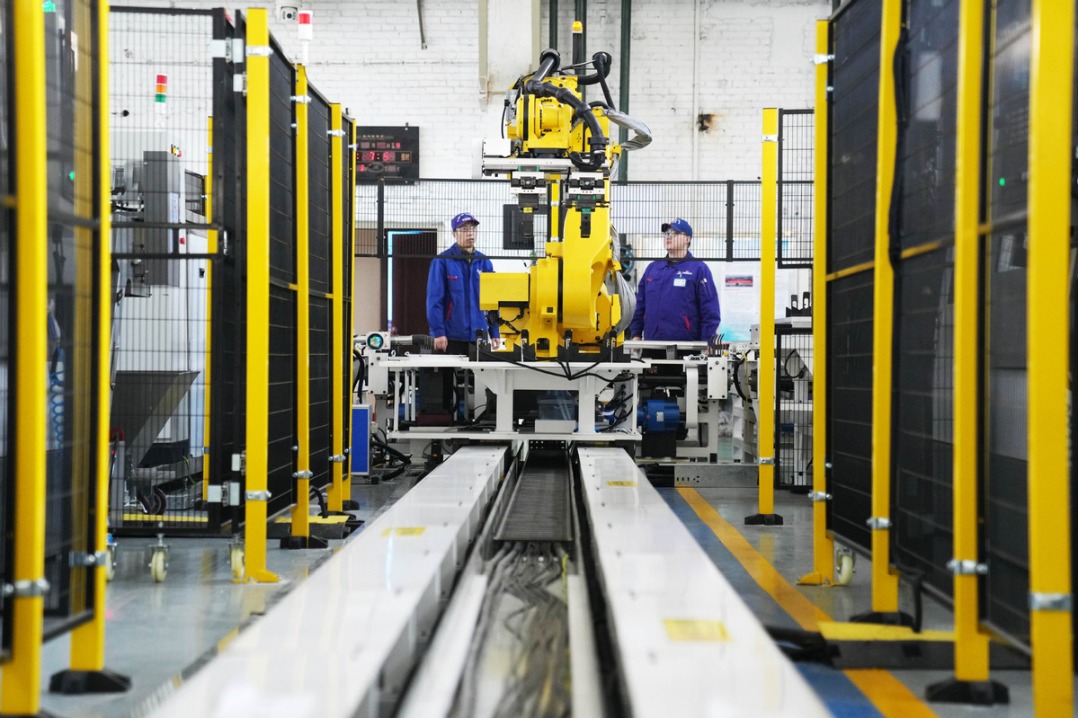Guideline to support FTZ growth


The move to further open up the China (Shanghai) Pilot Free Trade Zone will support its growth in goods and services trade, as well as strengthen the FTZ's attractiveness to global investors, senior officials said on Friday.
The comments came after the State Council, China's Cabinet, issued a comprehensive plan on Thursday to promote the high-standard institutional opening-up of the Shanghai FTZ by aligning it with high-standard international economic and trade rules.
The new policies will efficiently facilitate the smooth and unrestricted cross-border flow of commodities, technology, funds, data and other factors, said Tang Wenhong, assistant minister of commerce, at a news conference in Beijing.
This will contribute to the accumulation of experience in advancing a high-standard and system-oriented openness, Tang added.
Eighty measures, covering seven areas, were outlined in the plan. They include initiatives to facilitate trade in goods and services, promote digital trade and enhance the protection of intellectual property rights, among others.
For example, the plan has called for efforts to further open up key sectors, such as finance and telecommunications, make cross-border investment and financing easier, support multinationals in setting up capital management centers in China, and accelerate the opening-up of services trade in the Shanghai FTZ.
As international high-standard economic and trade rules have evolved continuously in recent years, these policies primarily include advancing reforms of the government procurement system, deepening reforms of State-owned enterprises, increasing protection for labor rights, and implementing high-level environmental protection measures, Tang said.
Established in September 2013, the Shanghai FTZ was the first of its kind in China, serving as a model for replication across the country. China has established over 20 FTZs to date.
The experience gained from the Shanghai FTZ throughout China will establish the groundwork for the country's entry into both the Comprehensive and Progressive Agreement for Trans-Pacific Partnership and the Digital Economic Partnership Agreement, said Sang Baichuan, dean of the University of International Business and Economics' Institute of International Economy in Beijing.
Hua Yuan, vice-mayor of Shanghai, said the Shanghai FTZ will take the lead in establishing institutional systems and supervision models that align with high-standard economic and trade rules, and move to build itself into a national demonstration zone for institutional opening-up.
The Shanghai FTZ has created a sound business environment for multinational companies and has been one of the factors for opening up the Chinese market, said Peter Terwiesch, executive committee member and president of the process automation business at Swiss-Swedish multinational corporation ABB Group.
Highlighting that the free trade zone's policies have strengthened ABB's exports from China, Terwiesch said that a significant factor is currency exposure, especially in the context of longer projects. Currency exposure can be quite substantial, and the FTZ provides a means to mitigate such risks.
MOST POPULAR
- 1 A look at China's economy in Q1 of 2024
- 2 China to remove foreign ownership restrictions in value-added telecom services in pilot areas
- 3 Query service of A Guide to Working and Living in China as Business Expatriates launched
- 4 Clear negative lists to speed up services trade
- 5 Canton Fair opens in China with surge in overseas purchasers
Editors' Picks
 Infographic:
How to understand China's production capacity
Infographic:
How to understand China's production capacity
 Infographic:
Milestones of China's journey to space
Infographic:
Milestones of China's journey to space





